Health
From Working as a Houseboy to Being the Best in School: Ssembuusi’s Story of Overcoming Hardships & Achieving Success
Published
3 years agoon
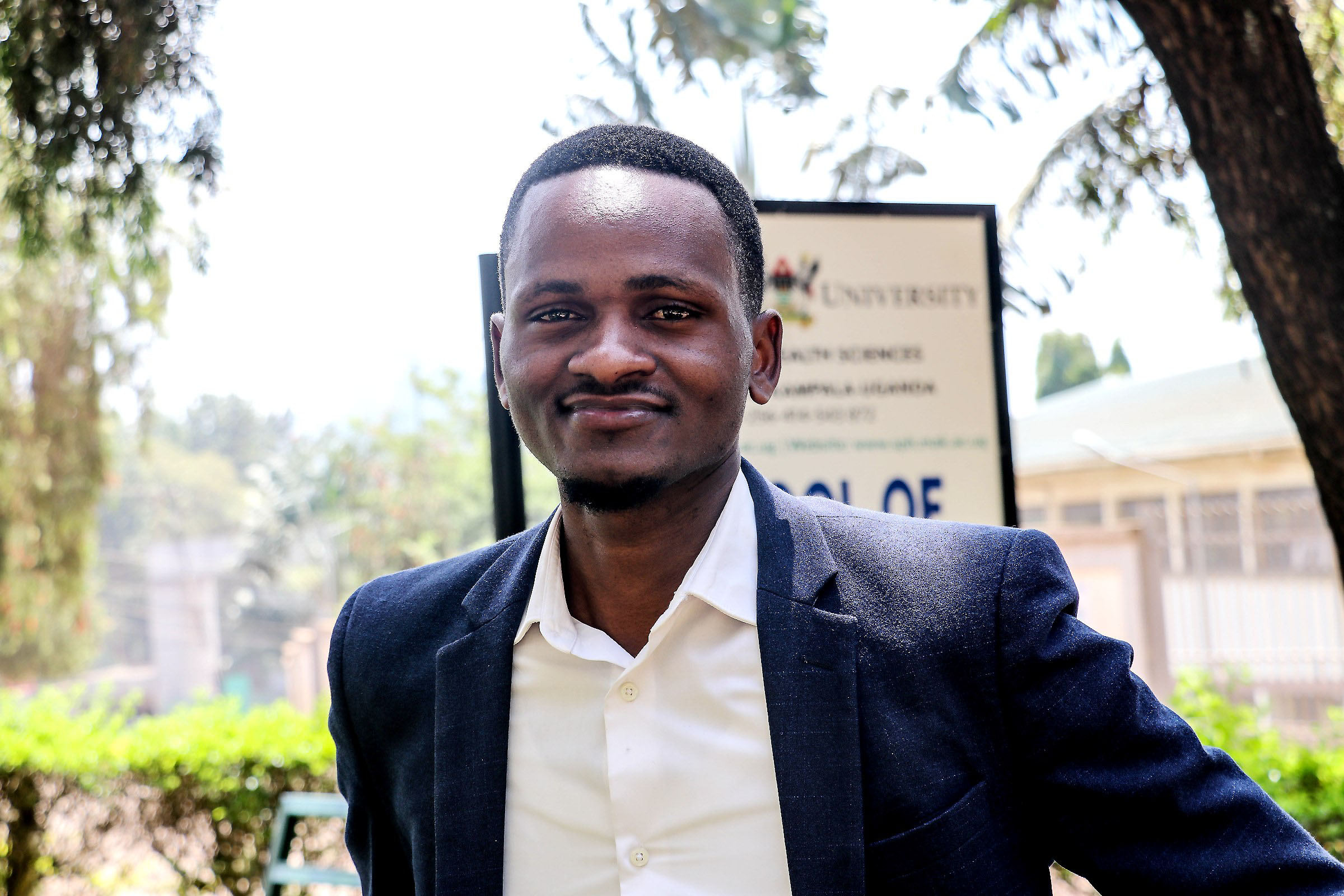
Against all odds, Allan Ssembuusi-Mayengo rose from a house boy to a First-Class student. In this episode of Makerere University’s week-long 73rd graduation ceremony slated to run from February 13-17, 2023 we present to you a story of a determined young man who never let his circumstances define him, and how he achieved the impossible through hard work, perseverance and the power of prayer. He will graduating as a second best in his class at Makerere School of Public Health (MakSPH) with a Cumulative Grade Point Average (CGPA) of 4.42.
With determination and a willingness to take on any job that came his way, Ssembuusi struggled through financial hardship to make a better life for himself. From selling water at the new taxi park to working as a phone repairman and even starting a mobile manicure and pedicure business, he used his entrepreneurial spirit to support himself through University, despite the challenges he faced he carved out a path to success, proving that with grit and perseverance, anything is possible.
Born on 15th February 1996 in Kyabiiri, Kibinge Subcounty, Bukomansimbi District in Greater Masaka to Wilson Mayengo and the late Sarah Nantongo, Ssembuusi is the 4th born in his family.
School life
For the better part of his childhood, Ssembuusi stayed with his step-mother Ms. Margret Namuddu in Kawanda, Wakiso District after a separation between his mother and father. His mother later passed away while he was in Senior four (S.4). With obstacles in his path he hopped from school to school sometimes to dodge school financial requirements.
As early as 2004, he had started school at Bituntu Church of Uganda Primary School in Masaka. He only completed his Primary One class before he was transferred back to Nalujja primary school in Kawempe in Kampala, where he had a short stint of two academic terms.
In 2005, his family shifted to Kawanda, a small town located north-west of Kampala, the Uganda’s capital town. While here, he completed his Primary Two (P.2) at Little Angels Primary School, a private school. The comfort was short lived as he would later relocate to Nakyessanja Church of Uganda Primary School from P.3 until he sat his Primary Leaving Examination -PLE in 2010.
“This was so hard for me, we didn’t even have lunch at school. In the morning, our step-mom would prepare for us tea with acoil bun (Mwana akaaba) bread of Shs. 100, and this would take us all day until our next meal in the evening. My stepmom always had dinner ready whenever we returned from school. It was hard being at school, seeing your colleagues going to the canteen to buy eats during break and lunch time when you are in class “eating shadows” but still I managed to perform well. I started being in the first position in class in P.3 up to when I finished P.7. All these challenges gave me determination and courage to work hard so that I get a better future,” recollects Ssembuusi.
While in P.3, Ssembuusi was top of his class in promotional examinations but he could not access his report card because his parents had failed to pay UShs 2,000 (approximately $0.54).
“While appearing at end of term School assembly, I was announced as being in the first position—the School administration used to announce the 1st, 2nd and 3rd place holders. We didn’t have that money at home so I didn’t pick my report. With this in mind however, I just reported to P.4 at the start of the next year. The headmaster however, came reading out names of those who didn’t pick their reports, and we were all taken back to P.3,” he says.
He recalls crying endlessly by this act but would only console himself knowing the situation back at home and that his father genuinely did not have the money; “We used to eat cassava flour with avocado. We had an Avocado tree at home and we would temporarily forget hunger in seasons the tree would, bear fruits. We would pick avocado and mash it as the sauce.”
As luck would have it, Ms. Grace Nakidde, his teacher provided him the required Ushs.2,000 that granted him access to his report, and then became officially promoted to the next class in 2006.
Ssembuusi, was frequently engaged in various household tasks, which caught the attention of a neighbor. At the age of 12, while in Primary Five, he went to work for this neighbor as a houseboy to earn money for school fees.
“At the time, we were paying around Ushs 10,000 (approximately $2.72), for remedial classes and Ushs 5,000 for lunch. I used to work day and night, but I stayed focused because I wanted to study. I would go to School barefooted. At P.7, I got 9 aggregates and this was the only first grade at my school.”
Ssembuusi’s excellent performance earned him a bursary to attend Central College Kawempe, a school owned by a relative of his employer. Despite this financial aid, he still had to pay for some school materials, which prompted him to continue working at home. “I would wash cars for our neighbor every day to buy books, but I still excelled and was the best in all three terms of S.1,” he said. However, due to the mistreatment he experienced as a houseboy, Ssembuusi confided in his parents, who then spoke to his employer. Unfortunately, this led to the loss of his bursary.
“Since my parents were unable to pay for my education at Central College Kawempe, they transferred me to Luteete Senior Secondary School in Luweero. I am grateful to Mrs. Kiwanuka who, through our shared faith at Elim Pentecostal church in Kawanda, connected me to Luteete where I was able to obtain a half bursary. This required me to raise Ushs 150,000 (approximately $40.82) on my own. Despite this, things were still difficult for me, as I often only had Ushs 20,000 (approximately $5.44) to last me through the entire term.”
Ssembuusi states that the school’s provision of lunch and supper helped him stay focused. He adds, “Sometimes I sold my lunch to afford necessities like books and pens, but I still excelled and remained the best throughout my stay, up to S.4. I scored 13 out of 8 aggregates, the best performance in the school’s 60-year history. I achieved it through hard work and prayer, even fasting dry for 3 days.”
After getting his Uganda Certificate of Education (UCE) results, Ssembusi moved to Wampeewo Ntakke Senior Secondary School along Gayaza Road with the help of his former head teacher Mr. Mike Ssekaggo. He says, “I scored 12 points in BCM/ICT and I remember getting a D1 in Biology Paper 3. I was also the founder and pioneer of the school’s Science Club.” After finishing S.6, he found a job as a porter at a construction site near his school. He adds, “Although students saw me working there, I was determined to survive. Later, my former head teacher helped me get a job as a canteen attendant at his school, where I stayed for 1 and a half years.”
Failing to join University and Resorting to Barber and Taxi Tout
Ssembuusi had always dreamed of going to university, but his journey was not an easy one., Despite sitting for his Uganda Advanced Certificate of Education (UACE) in 2016 with hope to join a university in 2017, he was not admitted to any of the institutions he applied to on his application forms. He lost that year of 2017 and decided to try again in 2018. “I had understood my points, and weights better and thought by trying on a Diploma, I would get admission. I applied for a diploma in Education at National Teachers College NTC Kaliro, but was not admitted once again”
Feeling defeated, Ssembuusi left his job as a canteen attendant and returned home, but struggled to find any opportunities. However, things still weren’t working out and he found himself living with his uncle who was a barber and taught him the trade. He also started working as a conductor on a taxi route from Jinja road-Kawanda-Matugga, where he used to meet his old teachers and colleagues. He felt like a failure, but still held on to hope for better opportunities.
“We used to ply the Jinja road route. I grew up on this route and so I had mastered it. While in this trade, I would meet my teachers, my former colleagues, the students I used to discuss for. For once, I felt like I was a total failure,” says Ssembuusi.

One day while operating as a taxi tout in Wandegeya, he bumped into an old friend, Jackline Nankya, who in 2020 graduated from MakSPH. They had studied together at Wampeewo Ntakke Senior Secondary School. Concerned about him she asked for his contact to check on him. Ssembuusi explained his situation and Jackline told him about the Government Loan Scheme program, a fund that awards study loans to Ugandan students seeking to pursue Higher Education but are financially constrained. She helped him apply for a course in Environmental Health Science, which he made his first choice, and also helped him apply for the Government Loan Scheme.
Ssembuusi was in a dilemma, he had even prepared to go to the United Arab Emirates to do “Kyeeyo” (cheap employment for immigrants to the developed world) with some sisters that were already there. His parents were excited about the prospect of him making money. “I didn’t tell them [parents] when I applied. I told them when I was admitted. I was in a dilemma and in fear of how my parents would react to me leaving an opportunity to work and provide for them.”
He sought advice from a few people, including his boss in the taxi business, before ultimately telling his parents. To his surprise, they were overjoyed when he finally shared his plans with them. They had the assumption that Makerere University was the only university in Uganda.
Life at MakSPH
Determined to succeed, Ssembuusi used all the money he made working in the taxi to buy the requirements needed for his first year. He was so passionate about his studies that he even joined a week before his colleagues and was voted unopposed as class representative. “This is where my journey to perform well started,” he says.
Adding that; “After our first lecture with Ms. Ruth Mubeezi, I felt deeply inspired. I approached her after class and shared my struggles with her. Her words of encouragement and assurance that I would be able to manage school, gave me the courage and determination to push forward. And that’s how I embarked on my journey towards achieving a first-class degree, starting off with a strong 4.6 GPA in my first semester.”
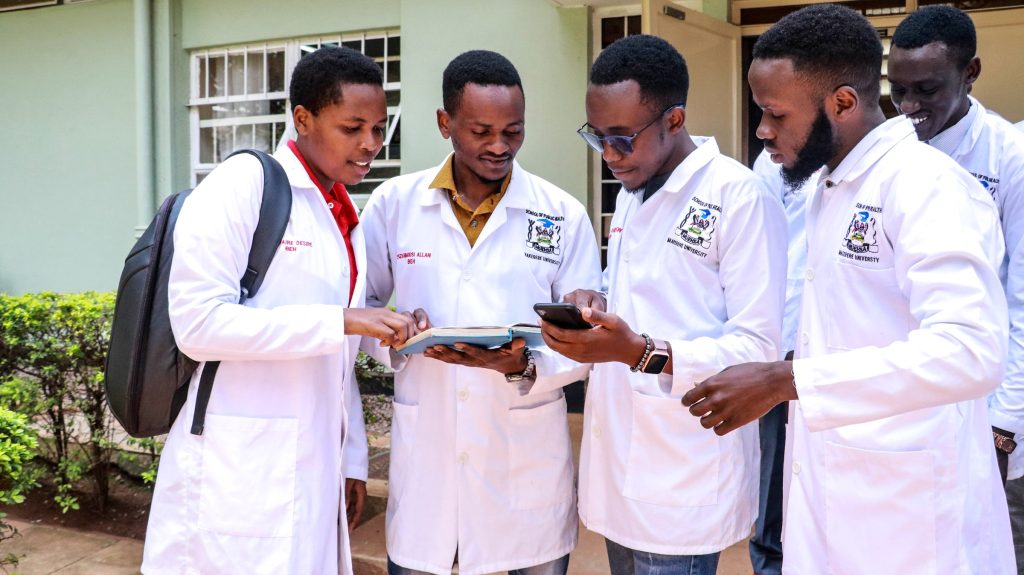
He commuted to school in his first semester, but during a brief holiday before the second semester, he decided to stop commuting and go back to his taxi business in the Old Taxi Park to earn money for accommodation. He was able to get some money and temporarily moved into Nkrumah Hall, one of the halls of residence for male students admitted to Makerere University, named after the great pan Africanist Nkwame Nkrumah of Ghana with a friend Kelvin Langat.
“I wanted to go back to work as a conductor to earn money for accommodation but it was the festive season so things didn’t work out. I decide to sell sugarcanes in Old Taxi Park because most people there, knew me. I used to contribute something and stay with him on the same bed before COVID came in and we had to leave campus,” a teary Ssembuusi recalls.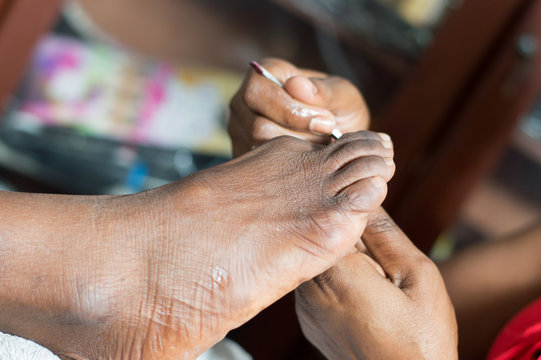
COVID-19 and Ssembuusi’s campus nail business
As the COVID-19 pandemic swept the world, it brought with it a host of challenges for students like Ssembuusi. With lockdowns in place and classes conducted online, Ssembuusi was forced to find ways to make ends meet. Like many students, Ssembuusi found himself struggling to afford the costs of accommodation, and everyday living expenses.
“I went to New Taxi Park (the old one was closed for renovation at this time) and sold water there. It was a tough moment, because I found so many classmates there boarding taxis to go about their business. I wanted to quit, but I also still wanted to survive,” he says.
The Student Loan Scheme is a cost sharing initiative. The Loan strictly covers the academic component, i.e., Tuition fees, Functional fees, Research fees, Aids and Appliances for Persons with Disabilities (PWDs). For Ssembusi’s case, the loan covered Ushs1.8m fees inclusive of functional fees and he is indebted to the loan scheme; “I am thankful for the Student Loan Scheme for enabling me to continue my education, however, they have not yet paid for my last three semesters, preventing me from accessing my transcript until the debt is fully cleared. Despite the delay in payments, they would still allow us to sit for exams with the assurance that they would pay later.”
It was during this time that Ssembuusi stumbled upon an unexpected opportunity. At a friend’s home, he discovered a salon offering manicures and pedicures. Intrigued, he asked the owner to teach him the trade, and soon found himself learning the skills needed to set up his own mobile manicure and pedicure business.
With the support of his classmates, Ssembuusi’s business quickly took off. Working on almost all of his female classmates, Ssembuusi found himself juggling the demands of her coursework and his business. But he was committed to making it work, and with the help of a loan from a friend, he was able to purchase the equipment he needed to keep his business running.
“I have been doing pedicure and manicure, and all my clients have been my colleagues. I was charging 10,000 to 30,000 Ushs for gel nails. People perceive it as a “low-key job”, and I am sure it’s hard for most campusers to do this kind of work especially on their classmates. I know some people come from advantaged families, but for those of us who have been disadvantaged, please don’t look down on any opportunities or jobs that will help you raise some money to sustain you,” he says.
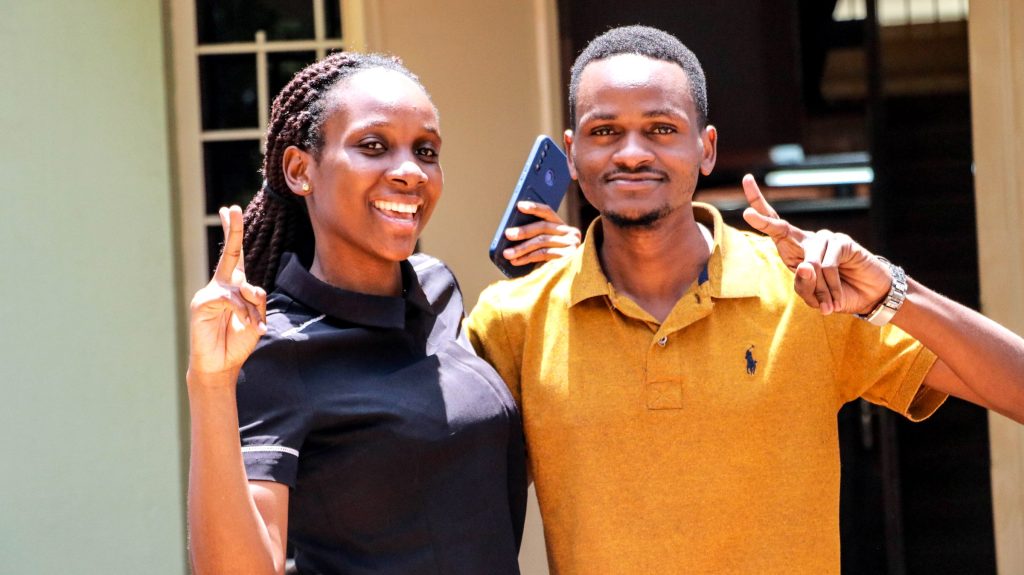
“I think I have worked on almost all my female classmates. The business boomed, I started getting recommendations but it was a challenge on my side to attend lectures and also attend to clients. My course is a full day course, and being a course representative, I had to be around. I managed to schedule my clients in the evenings and over the weekends when I worked all day.
Ssembuusi has throughout his school life struggled with self-doubt and imposter syndrome, but along the way found ways to overcome it through self-improvement and taking advantage of opportunities. He was active in the school community, serving as a class representative and holding leadership positions in Makerere University Environmental Health Students Association (MUEHSA).
He found success in extracurricular activities, such as participating in medical camps and running events. After finishing his course, Ssembuusi sought guidance from his mentors and ultimately landed a volunteer position under the mentorship of Dr. David Musoke, a Senior Lecturer in the Department of Disease Control and Environmental Health at Makerere University School of Public Health (MakSPH). His future goal is to pursue a Masters and eventually a PHD in academia and research. He encourages others to take advantage of opportunities in order to be successful.
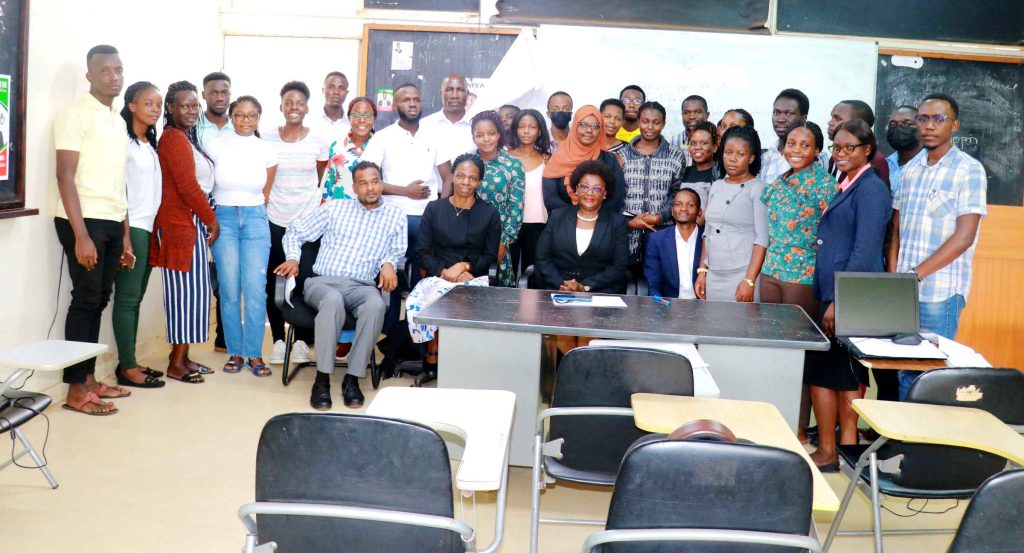
To achieve a first class, one must put in hard work and strive to do their best. “I didn’t set out to achieve a first class, but I now understand its value. A lecturer once told us, ‘Don’t listen to those who say a first class isn’t worth it – if you can earn one, go for it.’ That’s my advice to my peers – aim for the best and don’t be discouraged. I didn’t actively pursue a first class, but my efforts paid off in the form of this distinction,” says Ssembuusi.
He adds; “Mr. Frederick Oporia, who taught me inspection, court etiquettes, and environmental health legislation, is my standout lecturer and role model. Currently the Head of Trauma, Injury, & Disability (TRIAD) unit, he continues to inspire me. Additionally, Dr. David Musoke, who is my mentor, is someone I look up to and strive to emulate in my work.”
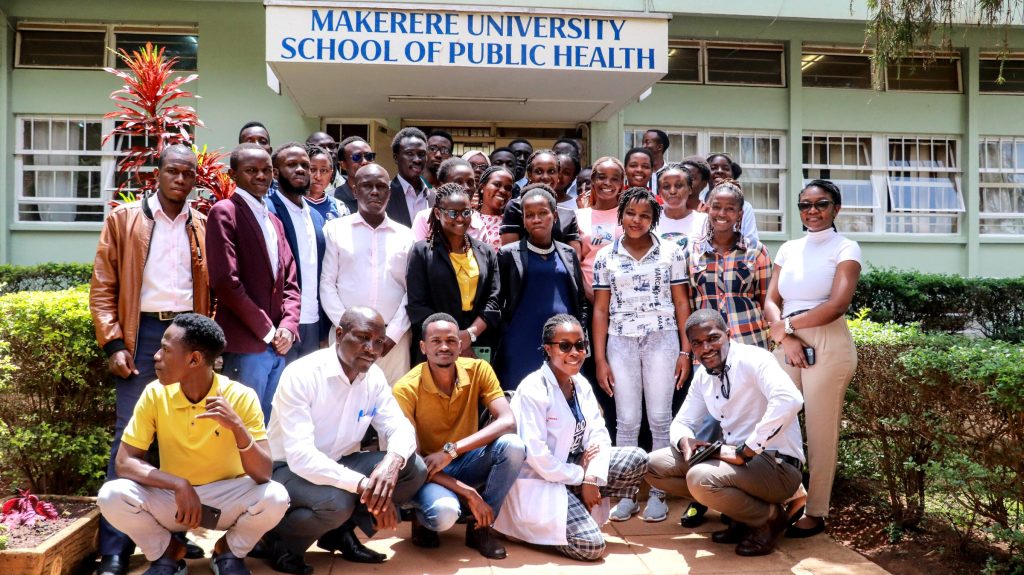
You may like
-


Makerere University School of Public Health Graduates First Cohort of Cost-Effectiveness Analysis Short Course
-


Climate variability found to shape malaria trends in Yumbe District
-


Uganda has until 2030 to end Open Defecation as Ntaro’s PhD Examines Kabale’s Progress
-


Olivia Nakisita and the Quiet Urgency of Adolescent Refugee Health
-


When Birth Becomes the Most Dangerous Moment, Wanduru & the Work of Making Labour Safer
-


How Jimmy Osuret Turned Childhood Trauma into Evidence for Safer School Crossings
Health
Makerere University School of Public Health Graduates First Cohort of Cost-Effectiveness Analysis Short Course
Published
24 hours agoon
February 20, 2026By
Mak Editor
Kampala, Uganda – The Makerere University School of Public Health (MakSPH) has marked a significant milestone with the graduation of the first-ever cohort of its Cost-Effectiveness Analysis (CEA) Short Course. The pioneering programme is designed to strengthen capacity in economic evaluation in Uganda and beyond.
The virtual graduation ceremony honored eleven (11) participants who completed the course. The cohort included professionals from academia, research institutions, government agencies, and non-state actors, reflecting the increasing demand for skills in economic evaluation across sectors.
The short course was developed and implemented by the Department of Health Policy, Planning, and Management (HPPM) in response to the increasing need for evidence-informed decision-making in a context of limited resources.
In her remarks during the ceremony, Assoc. Prof. Suzanne Kiwanuka, Head of the Department of Health Policy, Planning and Management (HPPM) at MakSPH, congratulated the inaugural cohort for completing what she described as a “critical and timely” course.
“With decreasing resources and rising demand for services driven by population growth and the emergence of high-cost technologies, decision-makers must make difficult choices,” she noted. “Cost-effectiveness analysis is no longer optional. It is central to conversations in the corridors of power.”
The CEA short course was designed to equip policymakers, researchers, and practitioners with both theoretical knowledge and practical skills in economic evaluation. Participants were introduced to key principles of health economics, costing methodologies, decision-analytic modelling, Markov modelling, sensitivity analysis, and interpretation of incremental cost-effectiveness ratios (ICERs).
According to Prof. Elizabeth Ekirapa, the course lead at MakSPH, this inaugural offering had been “a long time coming,” following years of discussions within the department about building local expertise in economic evaluation.
Delivered over 10 days through interactive online sessions, the course combined lectures, case studies, and hands-on modelling exercises using contextually relevant datasets. Participants were required to develop and present applied cost-effectiveness projects as part of their assessment, allowing them to translate theory into practice.

During the feedback session at the graduation ceremony, faculty emphasized the importance of clarity in defining study perspectives, selecting appropriate outcomes, and aligning research questions with modelling approaches.
Dr. Chrispus Mayora, one of the facilitators, highlighted the need to carefully select outcomes that directly reflect the intervention being evaluated. “When thinking about outcomes, ask yourself: Is this aligned with what I want to study? Interesting outcomes are not always the most appropriate ones,” he advised.
Participants were also encouraged to select modelling techniques such as decision trees or Markov models based on the research question and the nature of the disease or intervention under study.
Prof. Ekirapa described the graduates as “trailblazers,” noting that their feedback would shape future iterations of the course. “When you are the first cohort, you are like pioneers,” she remarked. “We are committed to improving this course to ensure it becomes a world-class programme.”
For many attendees, the graduation ceremony was a new experience, as certificates were awarded virtually an approach that participants welcomed as innovative and inclusive.
“Cost-effectiveness analysis enables us to maximise value for money,” noted Dr. Crispus Mayora of MakSPH. “It allows decision-makers to compare interventions systematically and ensure that limited resources achieve the greatest possible benefit.”
The programme aligns with Makerere University’s broader mandate to provide high-quality training that responds to national and regional development priorities. Participants who successfully complete the course receive a certificate signed by the Dean of the School of Public Health.
As the ceremony concluded, faculty encouraged continued engagement beyond the classroom. Graduates were urged to refine their project ideas and collaborate with the department in advancing research and policy discussions.
The successful completion of the first CEA short course marks an important step in building a cadre of professionals equipped to conduct rigorous economic evaluations. With plans to expand and refine the programme based on participant feedback, the HPPM department under MakSPH is positioning itself as a regional leader in health economics and policy analysis training.
Health
Uganda has until 2030 to end Open Defecation as Ntaro’s PhD Examines Kabale’s Progress
Published
3 days agoon
February 18, 2026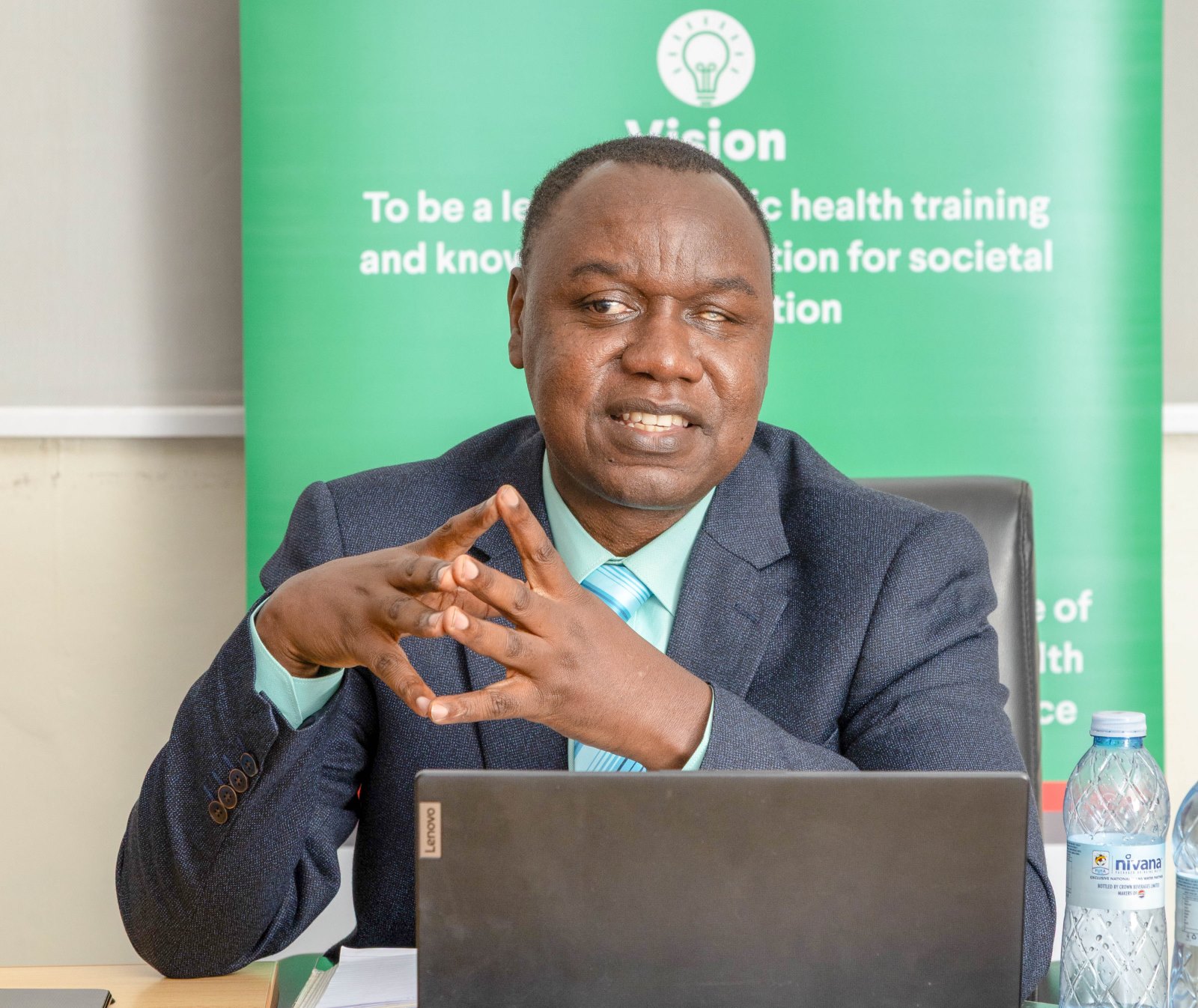
Silhouettes slip along narrow paths, farmers heading to their gardens, women balancing yellow jerrycans on their hips, children in oversized sweaters hurrying to school, and herders steering cattle toward open pasture, each movement part of a choreography older than memory. This is a quiet ritual in Kabale’s terraced hills, moments before the sun lifts.
The quiet procession to ahakashaka, or omukishaka, often sees figures moving quickly along familiar footpaths in the half-light, as children and adults walk with the urgency of habit. It is not a stroll but often a small, hurried run before daylight exposes what should be private.
It is February 2026, and the century-old Makerere University is celebrating its 76th Graduation Ceremony. The world paces and races toward artificial intelligence and digital revolutions. But some families still begin their day by rushing to the bushes for relief and concealment, while others engaged in economic activities such as gardening and grazing have no sanitation option other than using their surroundings to respond to the nature call!
The deadline to end open defecation is 2030. The science is settled, and the commitments are written into Sustainable Development Goal 6. Yet in parts of Kabale, only a small fraction of households is truly open defecation free.
In his PhD research, Dr. Moses Ntaro did not start with global targets or conference declarations. He began where the morning run ends, at the edge of the compounds, behind banana stems, along worn paths leading to Omukishaka. He asked whether students, equipped not with bricks but with conversation, follow-up, and persistence, could help communities replace that dash with something quieter: a door that closes.
What he found is both hopeful and unsettling. Change is possible. But dignity, like sunrise, should not require a run. And with 2030 approaching, time is no longer generous.
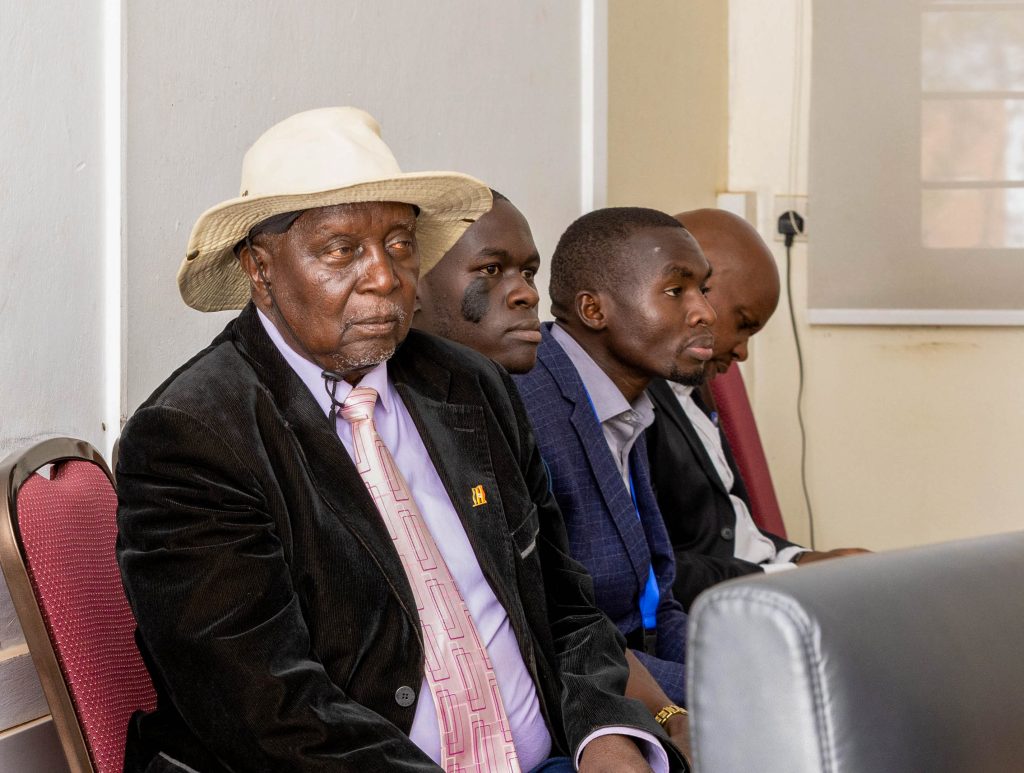
The Question That Would Not Let Him Go
Ntaro did not encounter open defecation as a statistic. While on foot and serving as Assistant Coordinator of Community-Based Education at Mbarara University of Science and Technology (MUST), he learned while supervising students placed in rural communities across southwestern Uganda. They walked villages together, conducted transect walks… and they observed.
“In my role as academic coordinator,” he explains, “students always took me on transect walks within the villages to show me how high open defecation practice was. The effect was evident in the high prevalence of intestinal infections we saw in health facility records.”
The link between sanitation and disease was not theoretical but visible in clinic registers. Diarrhea, intestinal worms, recurring infections among children, and more were all visible in the clinic registers.
Nineteen years ago, in 2007, Uganda adopted Community-Led Total Sanitation (CLTS), a strategy designed to trigger collective behavior change and eliminate open defecation. Progress, however, remained uneven. That same year, Ntaro was working as an Environmental Health Officer with the Water and Sanitation Development Facility under the Ministry of Water and Environment. He was three years away from completing his Environmental Health degree at Makerere University School of Public Health.
And so, the question emerged, to Ntaro, that, ‘If students are already embedded in these communities through COBERS placements, why are we not intentionally harnessing them to accelerate sanitation change?’
That question became his PhD.
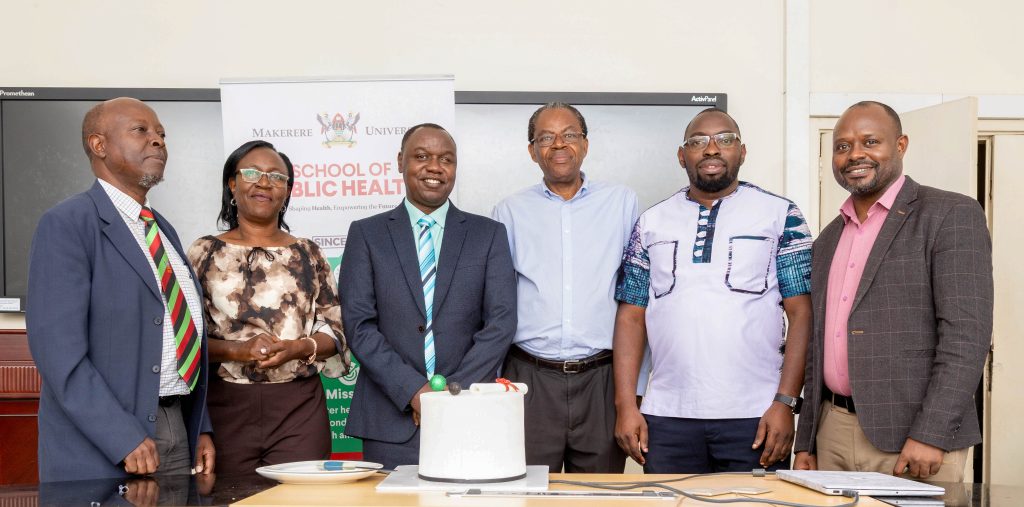
This is a Crisis That Should No Longer Exist
Globally, more than 350 million people still practice open defecation. Sub-Saharan Africa carries a disproportionate share. SDG 6, specifically Target 6.2, commits the world to ending open defecation and ensuring universal access to safe sanitation and hygiene by 2030. It prioritizes women, girls, and vulnerable populations. It speaks of dignity, of safely managed services, and of disease prevention.
We are four years away from that deadline. And in rural Kabale District, somewhere in southwestern Uganda, Ntaro’s research found that only 3 percent of households were truly open defecation-free.
Yes, three percent. His 2025 BMC Public Health study examined 492 residents. The average age was 49. Nearly 30 percent had no formal education. Most were women, the custodians of household hygiene and child health.
The determinants of Open Defecation Free (ODF) status were deeply behavioral.
Male-headed households had higher odds of being ODF. Households with clean compounds, clean latrine holes, and consistent handwashing practices were significantly more likely to sustain sanitation improvements.
Sanitation, Ntaro realized, is not only infrastructure but also power, memory, habit, and social expectation.
“Factors associated with ODF status were not just economic,” he notes. “They were behavioral and contextual.”
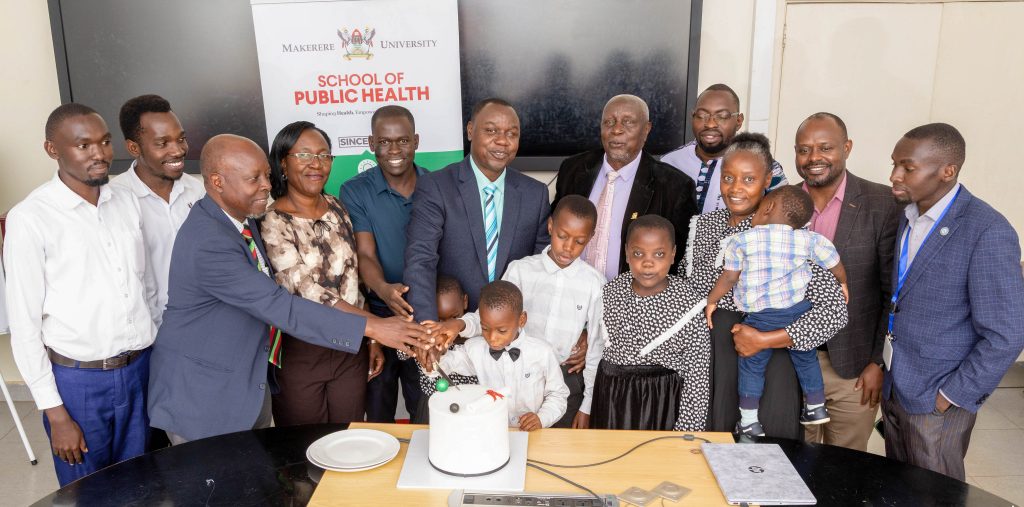
Why It Feels So Wrong to Still Discuss This
Talking about open defecation in 2026 feels unsettling for three reasons. First, it feels like a failure of basic dignity.
Think of an era of global connectivity and rapid technological advancement, and hundreds of millions still lack privacy. For women and girls, this exposes them to harassment, exploitation, and fear. Sanitation is not just about disease but safety.
Second, it feels like an avoidable health crisis. One gram of feces can contain millions of viruses, bacteria, and parasites. Open defecation directly fuels cholera, typhoid, diarrhea, and environmental enteropathy, a silent contributor to child malnutrition and stunting. The science is settled, and yet the practice persists.
Third, it feels like a poverty trap. Illness leads to lost productivity; lost productivity deepens poverty, and poverty limits investment in sanitation. The cycle continues.
“Open defecation is not simply a sanitation issue,” Ntaro says. “It is linked to poverty, nutrition, and broader development.”
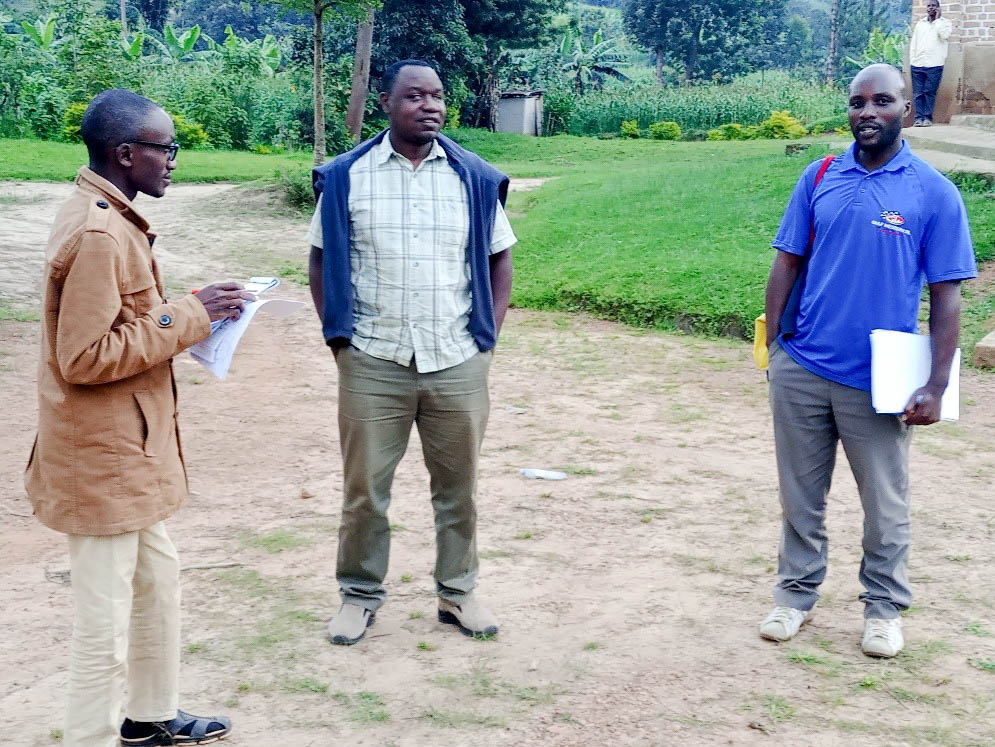
Testing a Different Approach
Ntaro’s doctoral thesis, “Effect of Student Community Engagement on Open Defecation-Free Status,” tested whether health profession students could effectively facilitate Community-Led Total Sanitation.
In some villages, traditional Health Extension Workers led the sanitation process. In others, trained students facilitated it under the COBERS (Community-Based Education, Research, and Service) model, which places medical trainees in community health facilities to learn through real-world practice, bridging classroom theory with primary care and public health work in rural settings.
Through this model, students led triggering, follow-ups, and community engagement. Open defecation declined. More households achieved Open Defecation Free status. And the cost per household was lower than in traditional approaches.
“Students were more effective,” Ntaro explains. “More households became open defecation-free compared to the traditional approach. And they were a cheaper human resource.”
But cost was not the real breakthrough. Presence was. Students stayed for weeks. They returned to check on latrines. They built trust. They kept coming back. Because sustainability, Ntaro argues, is not built in a single visit. It is built in repetition.
“There is a need for continued follow-ups and continued student engagement if long-term impact is to be realized.”
Change cannot be declared once and forgotten.
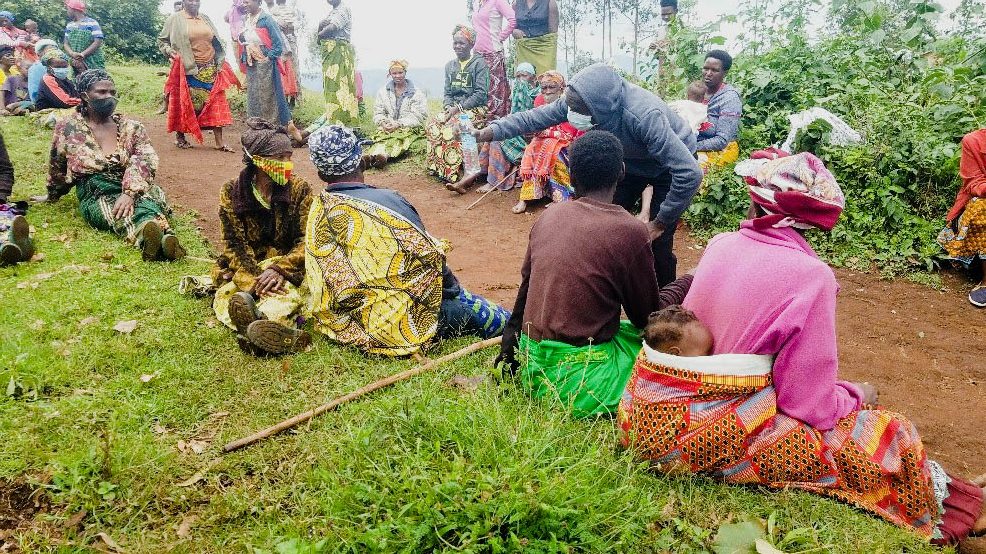
Behavior… and Not Just Bricks
Using the RANAS framework, Ntaro found that households that remembered to wash hands and kept latrines clean were far more likely to sustain Open Defecation Free status. In sanitation, behavior leaves evidence.
“Behavioral change interventions that empower communities,” he recommends, “such as CLTSH, should be strengthened to increase households with ODF status.”
In other words, building latrines is not enough, but communities must believe in them.
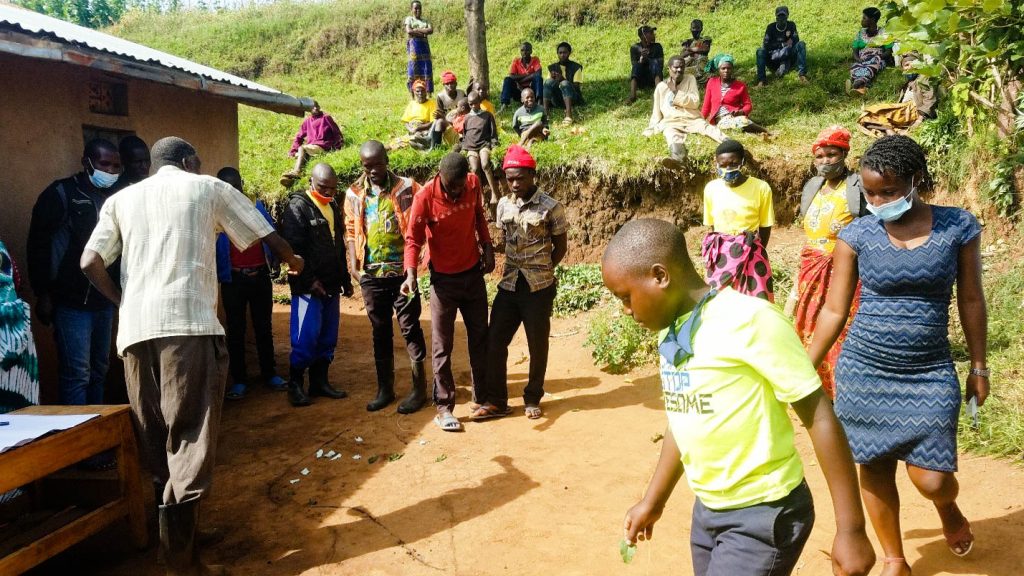
The Defense and the Countdown
On December 11, 2025, Ntaro defended his PhD. Examiners pressed him on scale and sustainability. Could student engagement be institutionalized? Could universities be embedded in district sanitation planning?
His answer was pragmatic: “Yes, but community-based education must be included in planning and budgeting.”
Four years remain to meet SDG 6.2. Four years to end open defecation and turn dignity from promise into practice. In 2026, this conversation should feel outdated. Instead, it remains urgent.
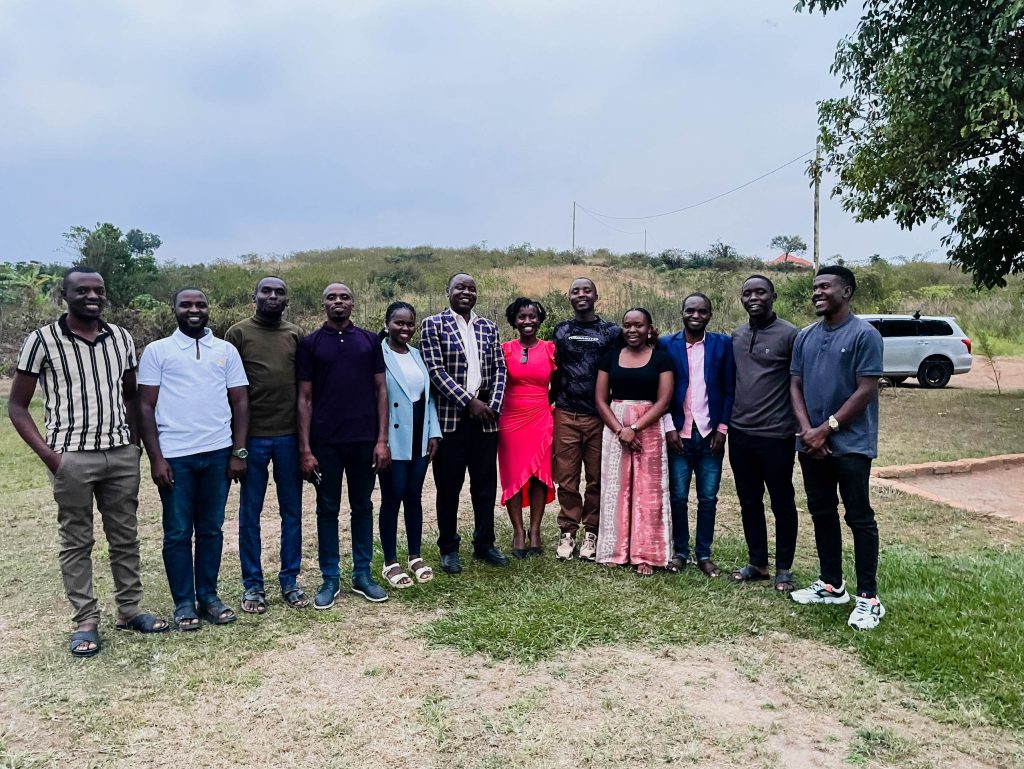
The Slow Work of Restoration
In Kabale, progress does not look dramatic. It looks like a latrine door closing firmly behind someone, a handwashing station with water and soap, a compound swept clean. It looks like a child who does not fall ill this month. Public health victories are often quiet.
As Makerere University approaches its 76th Graduation Ceremony, Dr. Ntaro Moses stands among its PhD graduands not with theory alone, but with evidence that change can be accelerated by reimagining who leads it. Students, he shows, are not only learners. They are the workforce, facilitators, and bridges between policy and path.
The hills of Kabale still wake under mist. But in more compounds now, privacy exists where bushes once stood open. Dignity is not restored in headlines, but one household at a time.
And with 2030 approaching, Ntaro’s work leaves a final, unavoidable question: if we already know how to end open defecation, if we already have the tools, the evidence, and the people, what, exactly, are we waiting for?
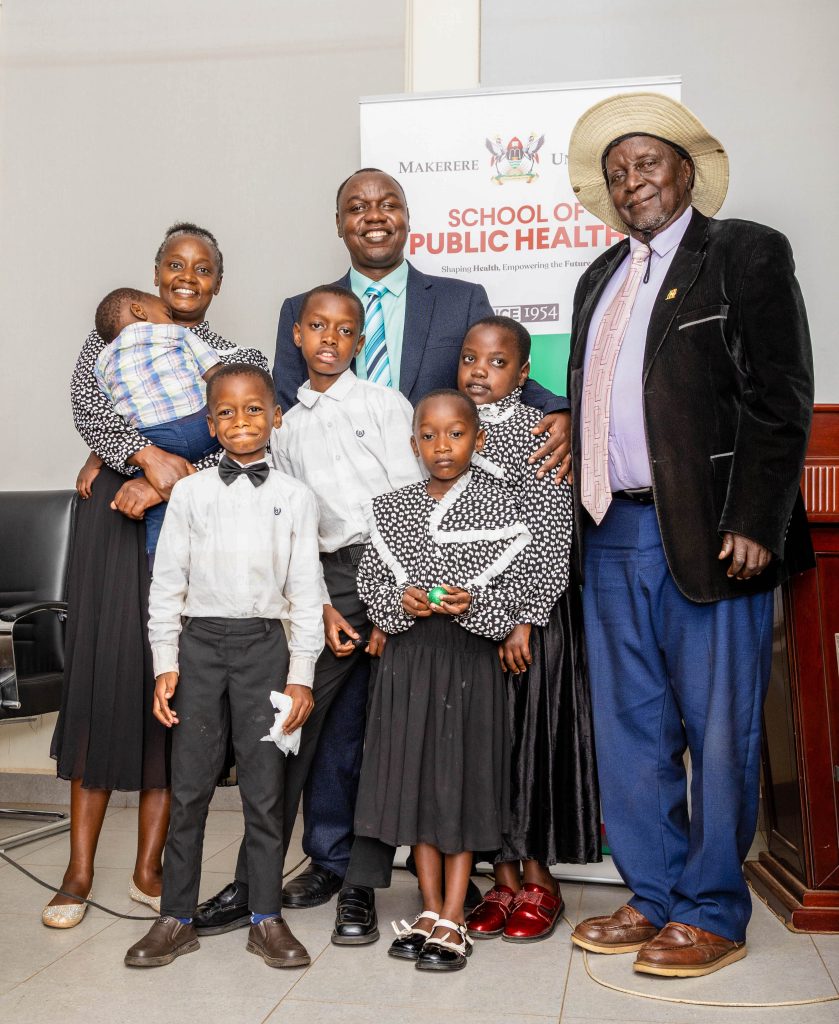
— Makerere University School of Public Health Communications Office, Graduation Profiles Series, 76th Graduation Ceremony
Health
Olivia Nakisita and the Quiet Urgency of Adolescent Refugee Health
Published
3 days agoon
February 18, 2026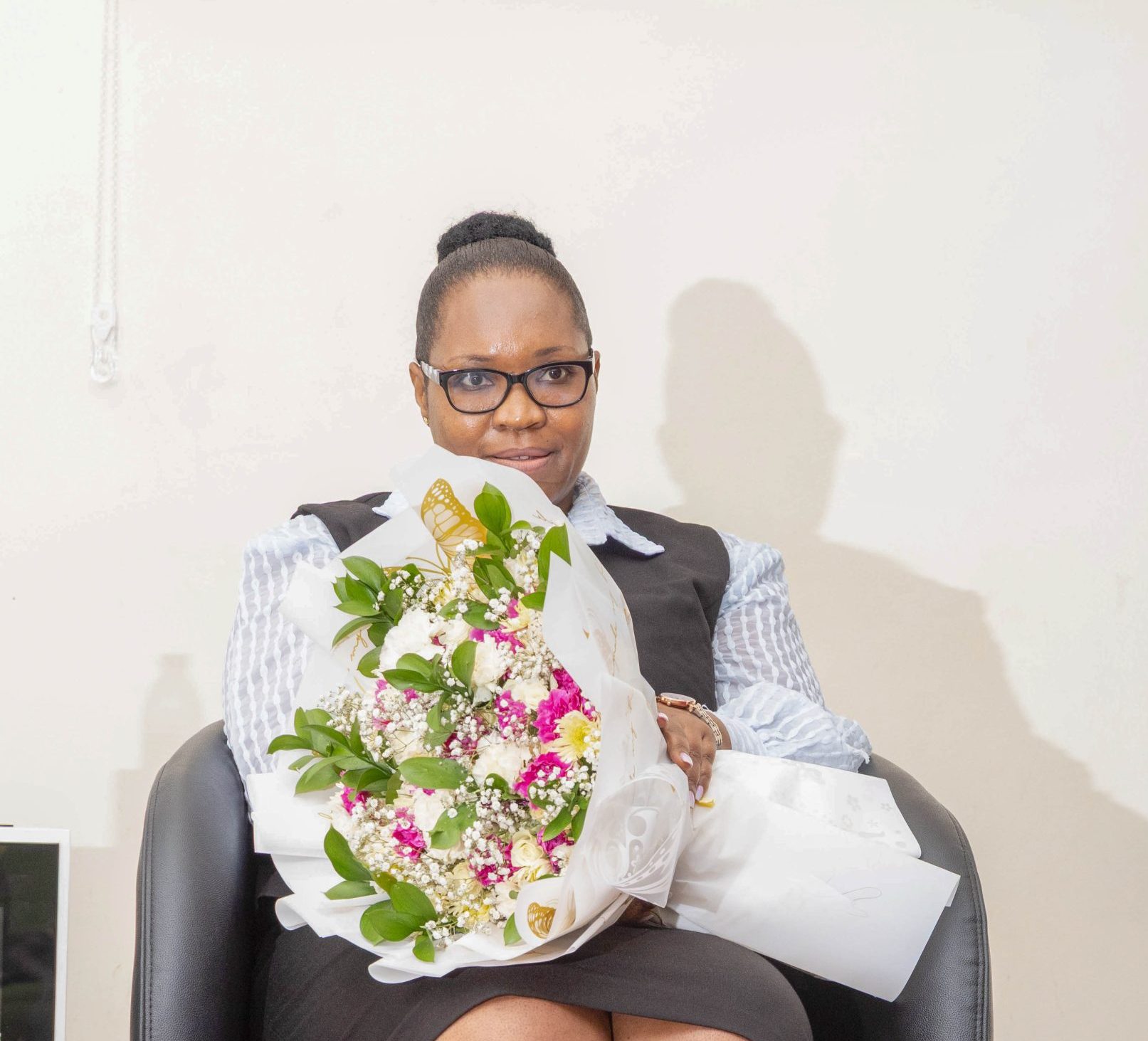
Kampala wakes early, but for some girls, the day begins already heavy. In Uganda, nearly three-quarters of the population is under 30, growing up happens fast, and often without protection. One in four Ugandan girls aged 15–19 has already begun childbearing, giving Uganda the highest teenage pregnancy rate in East Africa.
Layered onto this is displacement. The country hosts about 1.7 million refugees, many living in cities like Kampala, where survival depends on navigating systems not designed with them in mind. Also, nationally, 1.4 million people live with HIV, and 70 per cent of new infections among young people occur in adolescent girls, a reminder that vulnerability is rarely singular. When COVID-19 shut the country down, the consequences were immediate, with pregnancies among girls aged 15–19 rising by 25.5 per cent, while pregnancies among girls aged 10–14 surged by 366 per cent.
The numbers tell a story of youth, risk, and quiet urgency. But they do not tell it all. For years, Olivia Nakisita, a public health researcher,has followed how adolescent girls, many of them refugees, navigate pregnancy in Kampala: how far they must travel for care, how early they arrive or delay, and how often services that exist fail to meet them where they are. Her work lives at the uneasy intersection of policy and lived reality, where access does not always translate into care.
February 25th 2026, is the day that her work on whether urban health systems are truly ready for the youngest mothers they now serve will bring her to Freedom Square at Makerere University, where she will graduate with a PhD in Public Health.
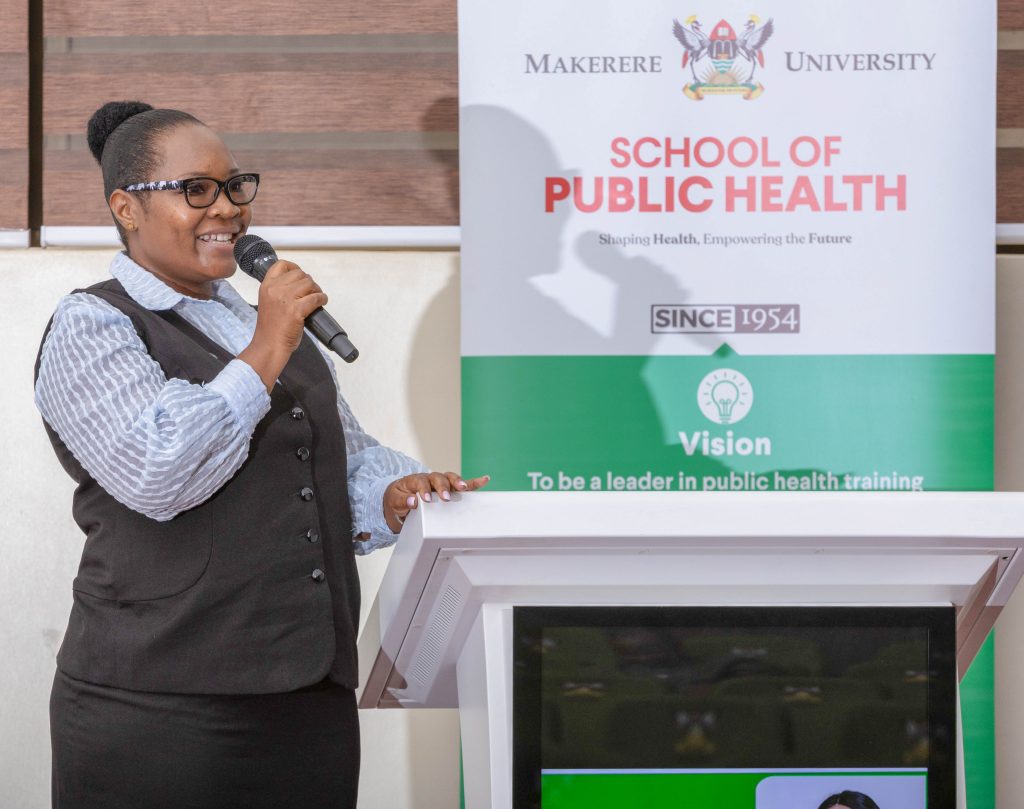
Her doctoral journey, focused on maternal health services for adolescent refugees in urban Uganda, has unfolded at the intersection of scholarship, community service, and the daily realities of young girls navigating pregnancy far from home.
The Work That Came Before the Question
Long before she began writing a PhD proposal, Olivia Nakisita was already immersed in adolescent health. As a Research Associate in the Department of Community Health and Behavioral Sciences at Makerere University’s School of Public Health, she taught graduate and undergraduate students, supervised Master’s research, and worked closely with communities. Beyond the university, she led New Life Adolescent and Youth Organization (NAYO), a women-led organisation she founded in 2021 to strengthen access to sexual and reproductive health and rights (SRHR) information and services for adolescents and young people.
It was through this community work that a troubling pattern began to surface.
“During our community service,” she explains, “we noted increasing teenage pregnancies, and we also noted challenges with access to maternal health services by teenage pregnant girls.”
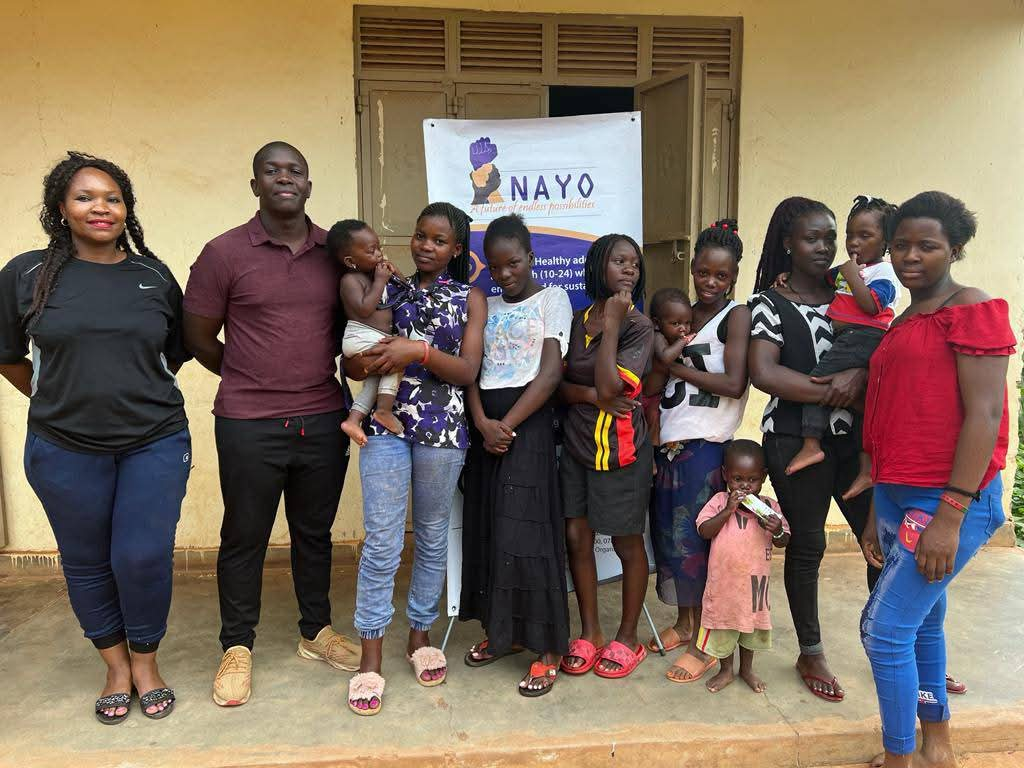
Among those girls were adolescents living as urban refugees in Kampala, young, displaced, often poor, and navigating pregnancy in a city not designed with them in mind.
For Nakisita, the concern deepened through her academic training in Public Health Disaster Management, one such programme that prepares multidisciplinary professionals with the technical expertise and leadership competencies required to plan for, mitigate, respond to, and recover from complex disasters through a public health lens. This programme sharpened Nakisita’s interest in how displaced populations survive within complex urban systems. Uganda’s integrated health model, where refugees and host communities are expected to use the same facilities, appears equitable on paper. In practice, it can be unforgiving.
“I got interested in understanding how these refugees who get pregnant manage to navigate the complexities of integration in host societies like Kampala,” she says. “This was driven by the desire to address their needs and to inform and evaluate existing refugee health policies.”
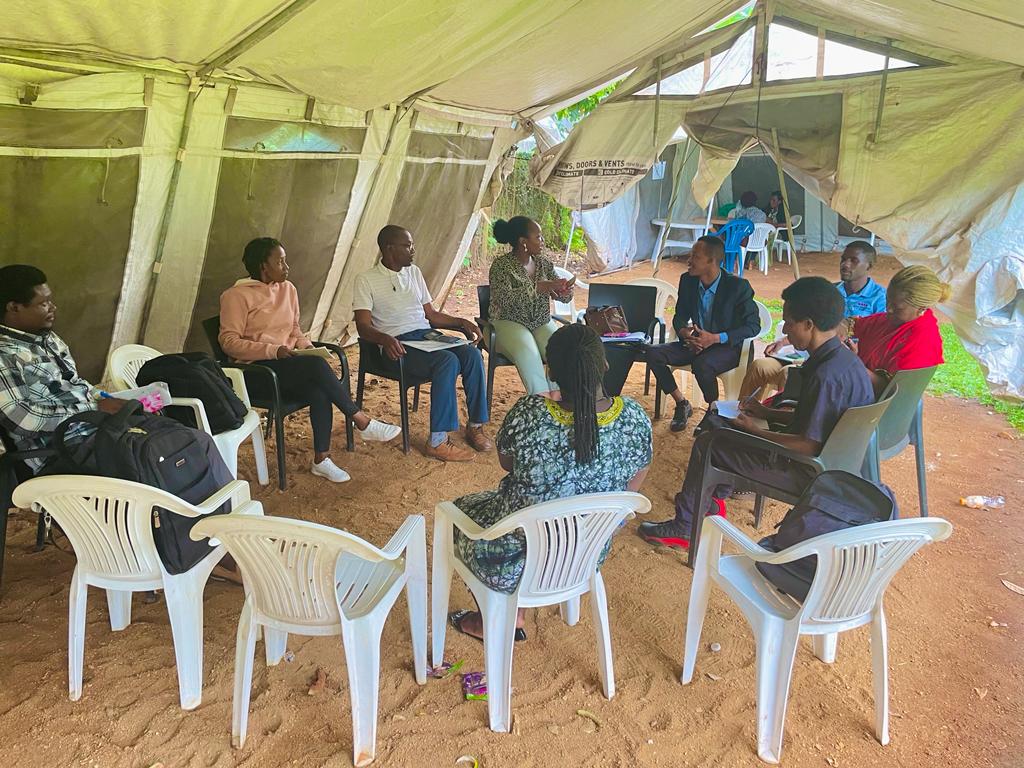
That desire became the foundation of her PhD.
Asking Hard Questions in a Crowded City
Her doctoral research, “Maternal Health Services for Adolescent Refugees in Urban Settings in Uganda: Access, Utilisation, and Health Facility Readiness,” was conducted in Kampala between November 2023 and August 2024. It combined quantitative surveys with qualitative interviews, engaging 637 adolescent refugees aged 10–19 years, alongside health workers and facility assessments.
Her findings showed high perceived access to maternal health services. Clinics existed. Services were available. Yet utilisation, particularly of antenatal care (ANC), lagged. “About three-quarters of the girls attended at least one antenatal visit,” she explains, “but only about four in ten attended in the first trimester.”
And that gap matters. Public health research shows that early and regular antenatal care allows health workers to detect high-risk pregnancies, initiate supplements such as iron and folic acid, monitor fetal development, and provide psychosocial support. Without it, risks compound silently.
By contrast, her study found that facility-based deliveries were remarkably high, with nearly all adolescent refugees (98.3%) giving birth in health facilities, suggesting that the system was reachable, but uneven.
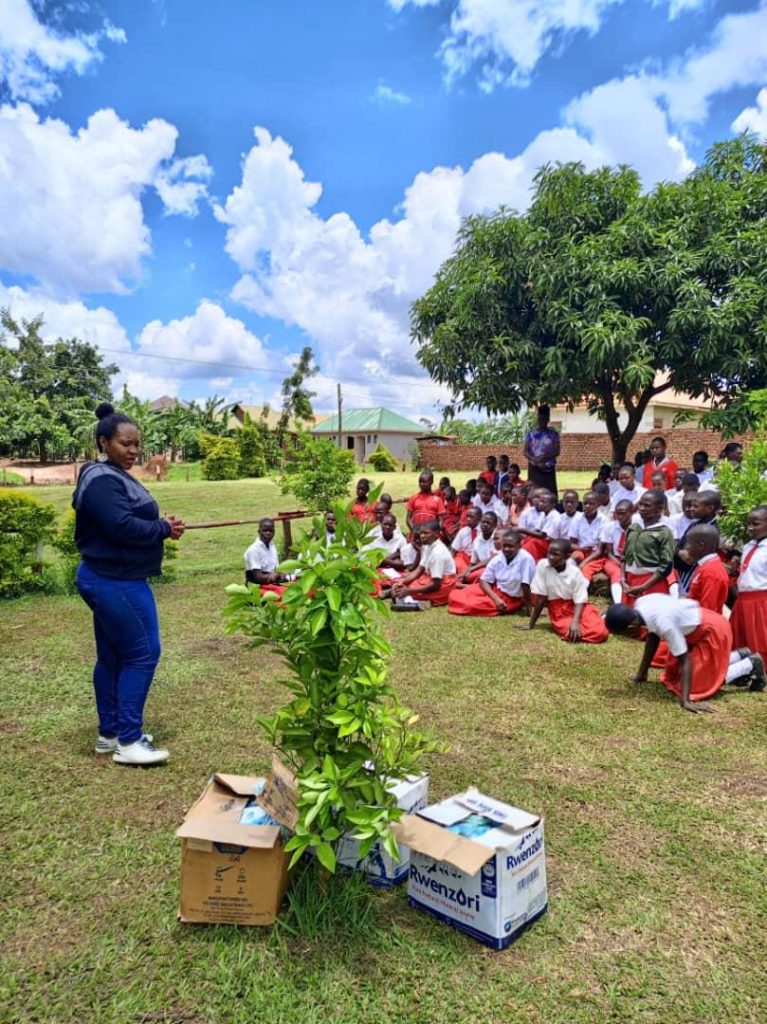
Where the System Falls Short
Her research went beyond utilisation to examine whether health facilities were actually ready to serve adolescent refugees.
Findings show that lower-level health centres in Kampala were moderately prepared to offer adolescent-friendly maternal health services. Some staff were trained. Some spaces existed. Despite this, critical gaps remained. For instance, facilities lacked essential equipment and supplies. Non-provider staff were often untrained. Separate, private spaces for adolescents were limited. Language barriers complicated care. Overcrowding strained already stretched health workers.
In her qualitative interviews, health workers expressed empathy and willingness to help. Many relied on peer educators and community health workers to reach adolescent refugees. But good intentions were not enough.
“They recommended training of healthcare workers, translators for refugees, and improvement in the availability of essential drugs, supplies, and equipment,” Nakisita notes.
She notes that readiness is not just about infrastructure but about the people, preparation, and priorities.
Research with an Emotional Cost
For Nakisita, working with adolescent refugees required care, not only methodologically, but emotionally.
Finding participants in Kampala was itself a challenge. Unlike settlement settings, urban refugees are dispersed, often invisible. Ethical considerations were constant. Adolescents who had given birth were legally considered emancipated minors, but their vulnerability remained.
Though the thesis focused on systems rather than personal narratives, Nakisita’s earlier work with adolescents informed every decision she made. It shaped how she framed questions, interpreted data, and weighed policy implications. This was not detached research, but careful, deliberate, and grounded.
The Scholar Formed by Continuity
Nakisita’s PhD sits atop more than 18 years of experience in training, research, and community service. She is an alumna of Makerere College School (UCE), 1996 and Greenhill Academy Secondary School (UACE), 1998, a long journey through Uganda’s education system before her Diploma in Project Planning and Management at Makerere University completed in early 2000s.
She would later return eight years later to Makerere University for her Bachelor’s degree in Social Sciences and a Master’s in Public Health Disaster Management, and now a PhD in Public Health.
Her academic rigor is reflected in extensive training across SRHR, impact evaluation, research methods, ethics, disaster resilience, and humanitarian health. She has presented at regional and international conferences and published in peer-reviewed journals on adolescent health, refugee maternal care, gender-based violence, and health systems readiness.
As a PhD student, she supervised three Master’s students to completion, with another currently progressing, quietly extending her influence through mentorship.
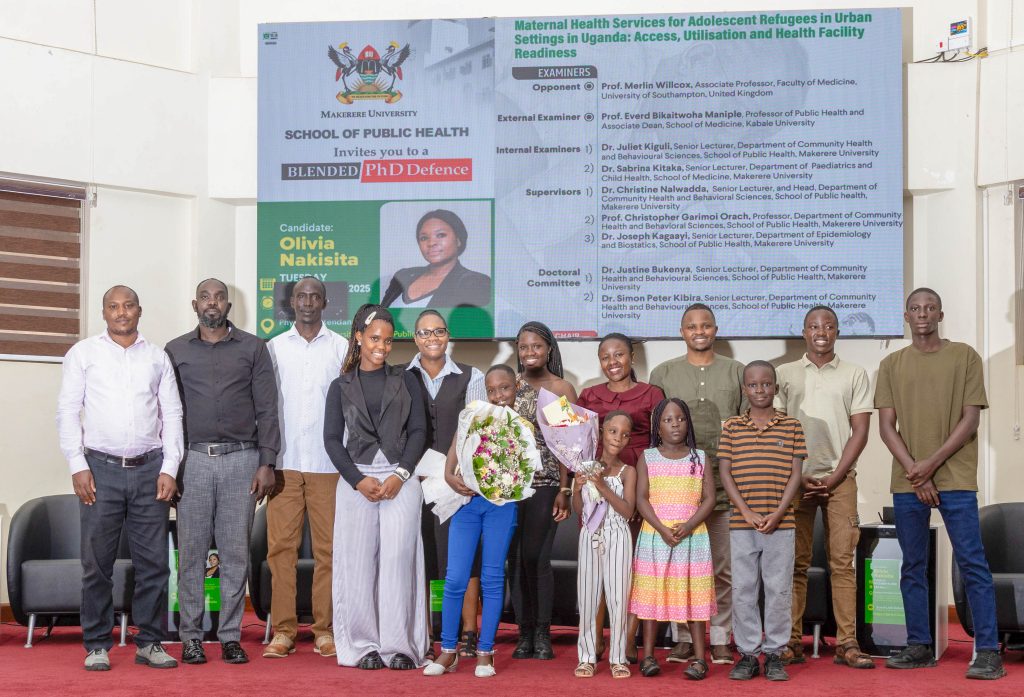
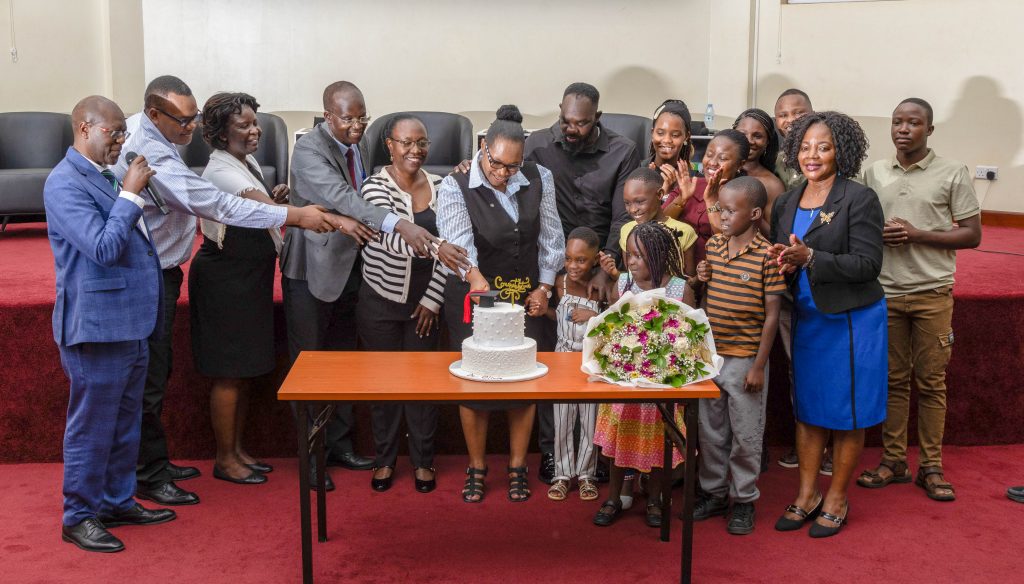
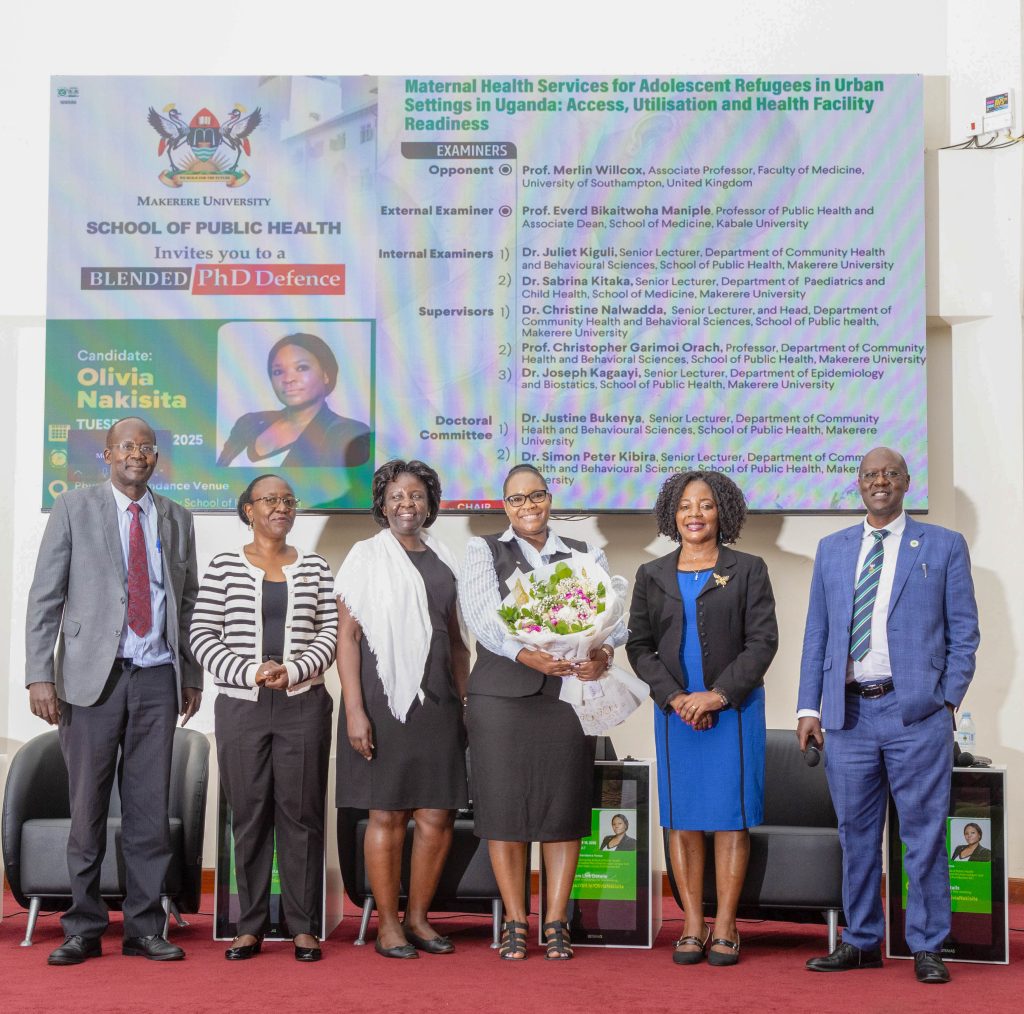
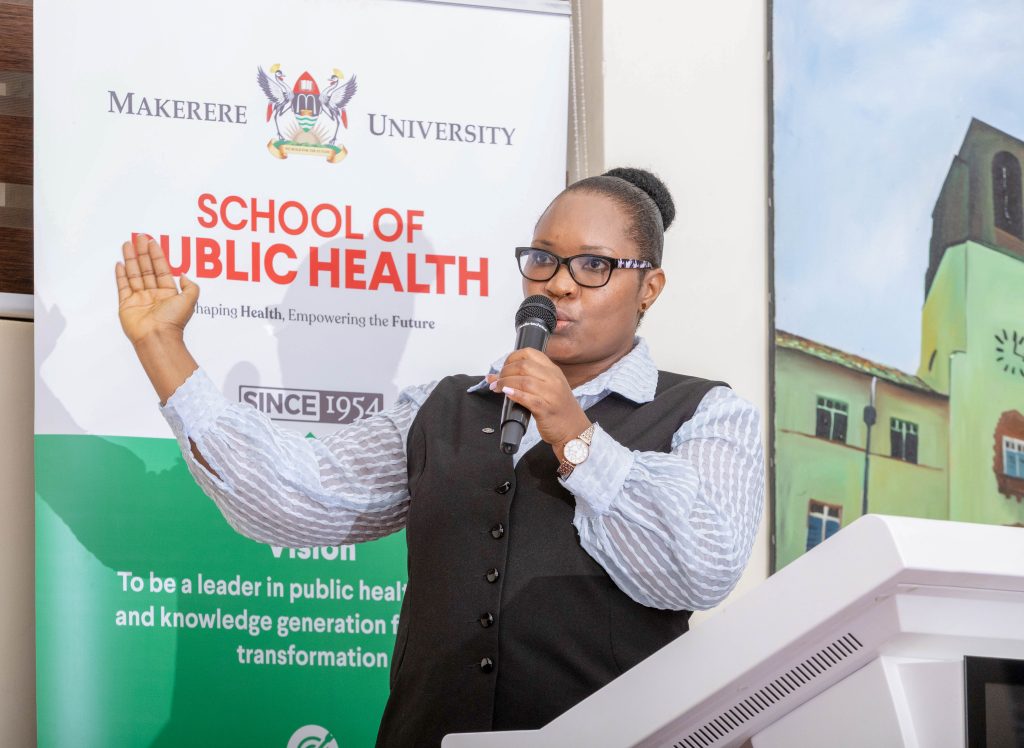
When Evidence Demands Action
If policymakers were to act on one lesson from her research, Nakisita says; “Emphasis should be given to maternal health services for adolescents.” “They are high-risk mothers,” she adds.
Her findings call for targeted community-based interventions, outreaches, home visits, and financial support for adolescents who cannot afford prescribed drugs, delivery requirements, or critical tests like ultrasound scans.
They also call for health systems to move beyond one-size-fits-all models, recognising that age, displacement, and poverty intersect to shape how care is accessed and experienced.
Now that her PhD is complete, Nakisita plans to translate research into action. Several papers from her study have already been published. A policy brief is planned to influence decision-making in urban and humanitarian health settings.
When asked what she would say directly to adolescent refugee girls navigating pregnancy in unfamiliar cities, her response is simple and direct.
“If it happens,” she says, “as soon as you find out, go to the nearest health facility and seek care. Always return for the visits as asked by the health worker. Ensure that you deliver in a health facility with a skilled health worker.”
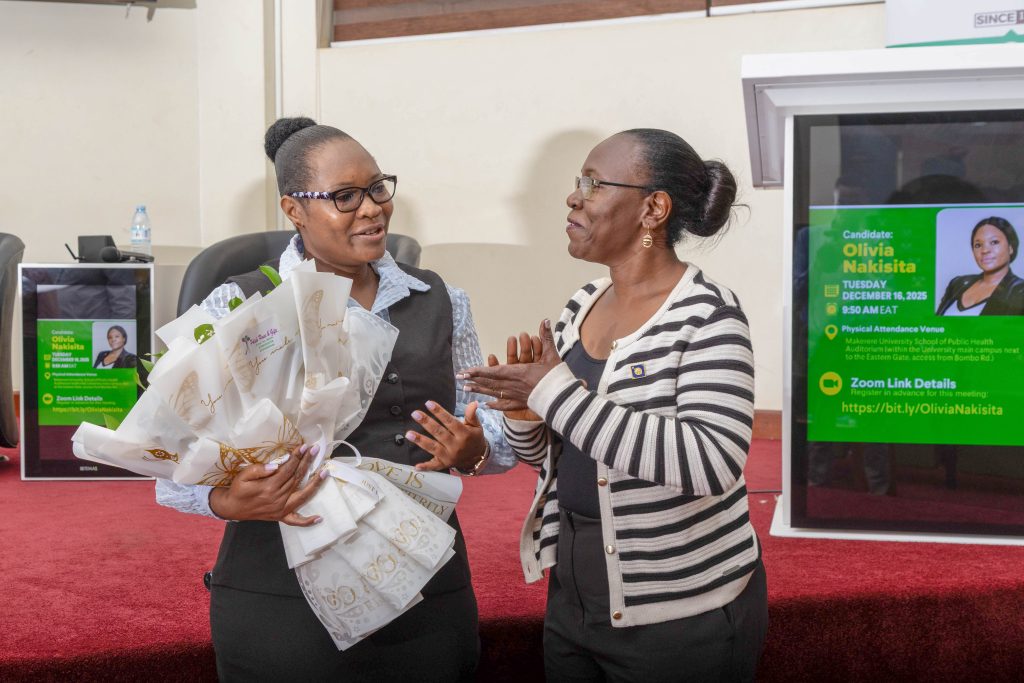
Arrival, Without Illusion
When Dr. Olivia Nakisita steps onto the graduation stage at Freedom Square, applause will follow. But the true significance of that moment lies in health facilities still struggling to adapt; in adolescent refugees whose pregnancies unfold quietly in rented rooms and crowded neighborhoods; in policies waiting to be sharpened by evidence.
Her scholarship does not promise quick fixes but offers clarity.
Among the PhDs conferred at Makerere University’s 76th graduation, her work reminds us that some research does not begin in libraries and does not end with theses. It lives on in the slow, necessary work of making health systems see those they have long overlooked.
— Makerere University School of Public Health Communications Office, Graduation Profiles Series, 76th Graduation Ceremony
Trending
-

 General2 weeks ago
General2 weeks agoAptitude Exam (Paper 1) Results for the Mature Age Entry Scheme 2026/2027
-

 Health3 days ago
Health3 days agoUganda has until 2030 to end Open Defecation as Ntaro’s PhD Examines Kabale’s Progress
-

 Health2 weeks ago
Health2 weeks agoHow Jimmy Osuret Turned Childhood Trauma into Evidence for Safer School Crossings
-

 General2 weeks ago
General2 weeks agoFor Youth by Youth – Call for Second Cohort Applications
-

 General3 days ago
General3 days agoMastercard Foundation Scholars embrace and honour their rich cultural diversity
